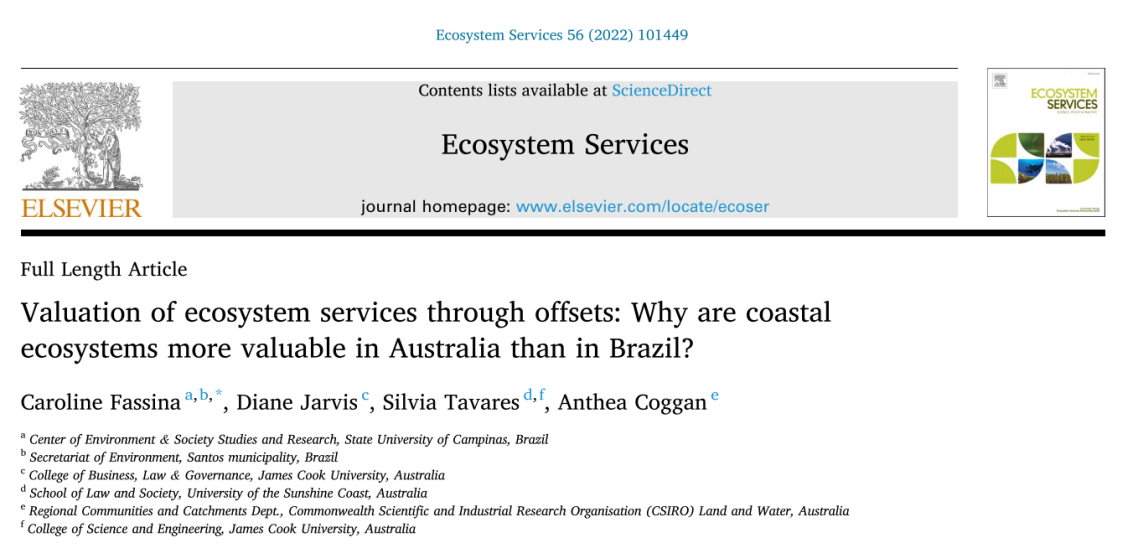Valuation of ecosystem services through offsets: Why are coastal ecosystems more valuable in Australia than in Brazil?
This is a not-so-recent publication which came out last year. In this publication Carol Fassina, Diane Jarvis and Anthea Coggan discuss the differences between environmental offset processes in Australia and Brazil.
The full article is available here.
ABSTRACT
Economies depend on ecosystem services, but only recently have ecosystem service values been incorporated into economic and political decision-making. Increasingly, offsets have become a common valuation tool for incor- porating the value of nature into economics. To offset means to compensate ecosystem losses in one place by creating equivalent gains elsewhere: this is the pragmatic ‘no net loss’ of biodiversity approach. Offsets are currently attracting particular attention in Santos, Brazil, where the largest Global South harbor is located. Port stakeholders are pressuring for revision of the local offset policy to enable an expansion of their activities and related immitigable impacts. Seeking to contribute to improved policy design at local scale, we proceed in two steps: (1) compiling and selecting comparable offsets policies around the world, considering those targeted specifically at ecosystems; and (2) identifying the methodological differences that can lead to discrepancies in final monetary values. Results show that the same kind of development (port), impacting a similar ecosystem (mangrove), have been assigned offset values six times less if allocated in Sao Paulo (Brazil) rather than in Queensland (Australia). We identify a general out-of-kind tendency for offsets and explore these comparative results from the perspective of identifying possible and desirable improvements.
